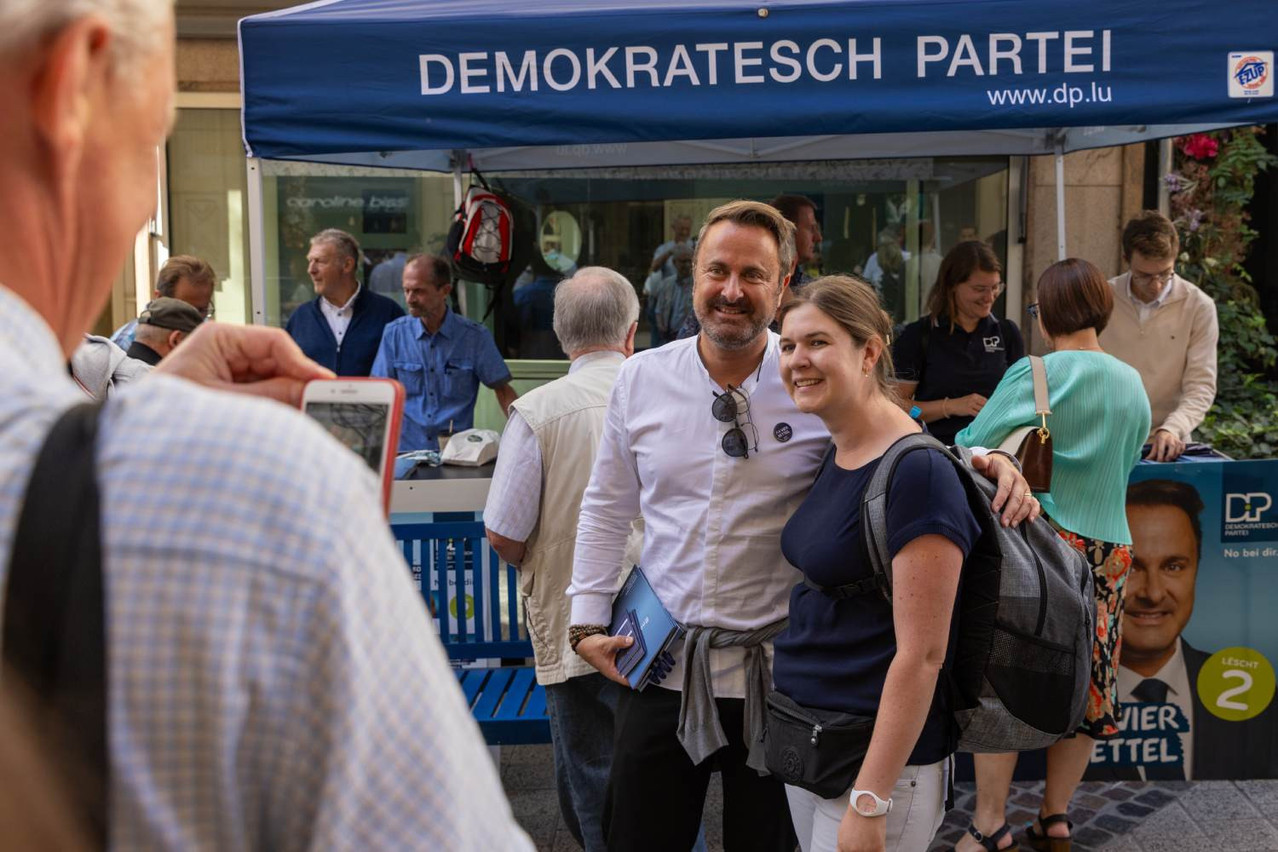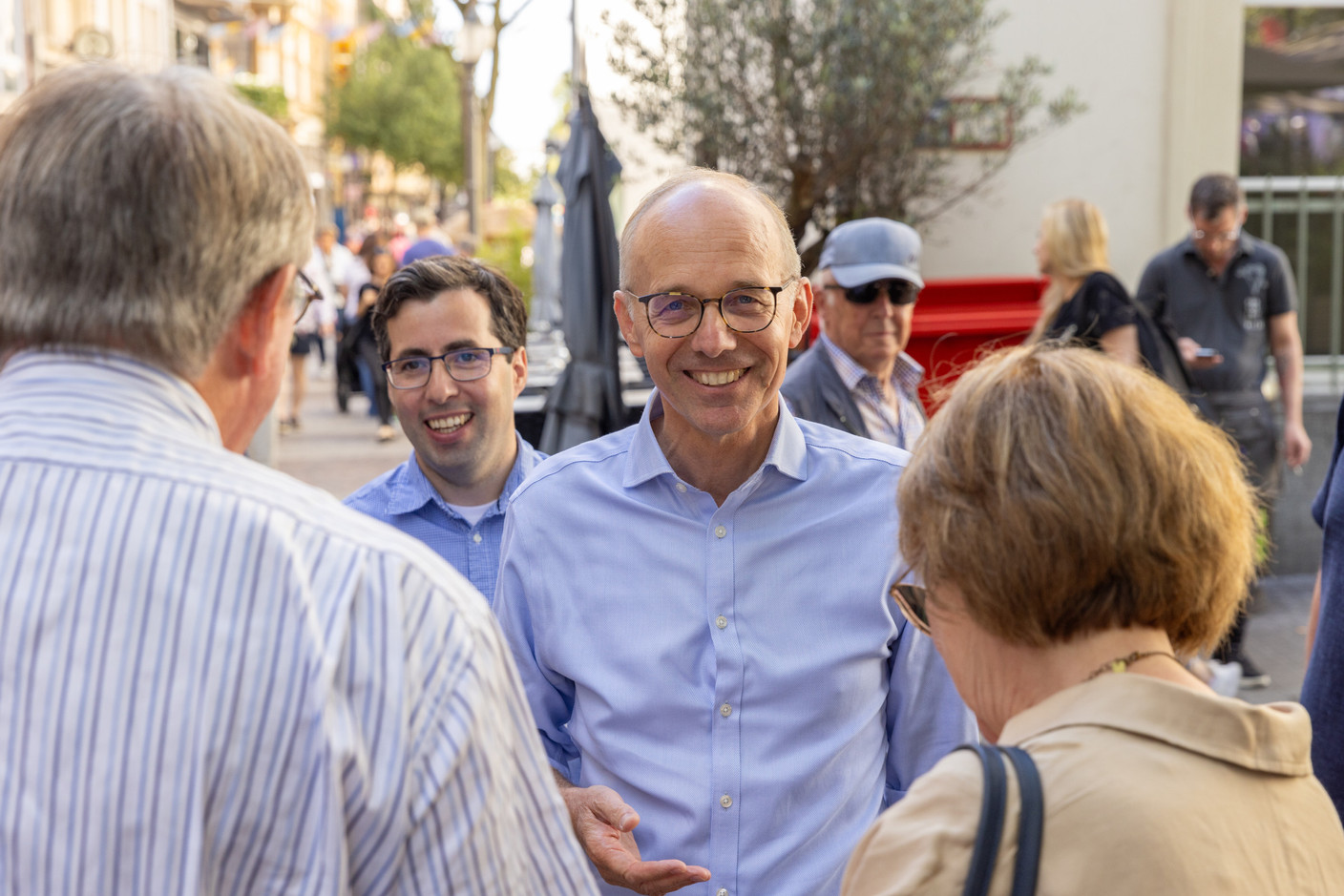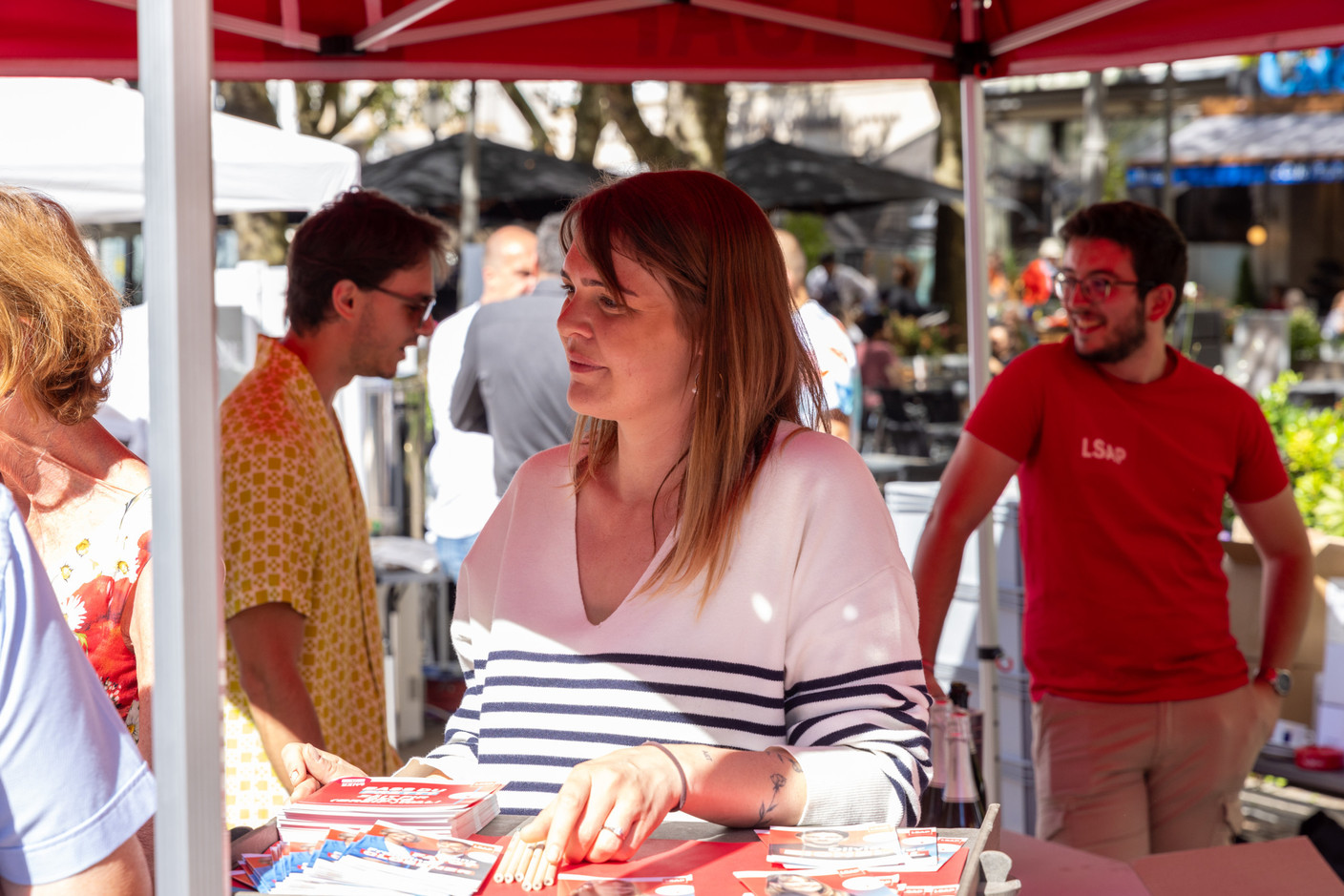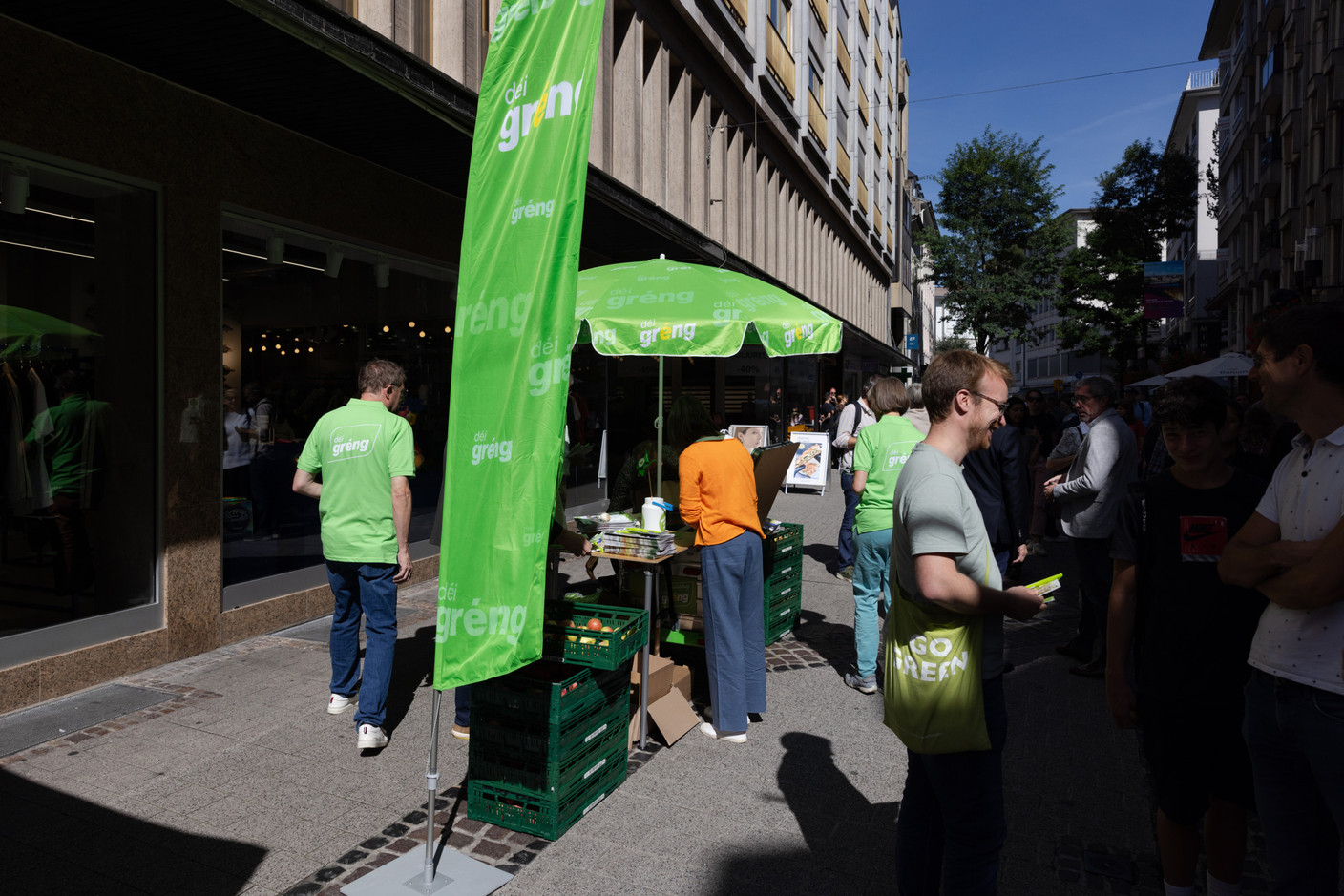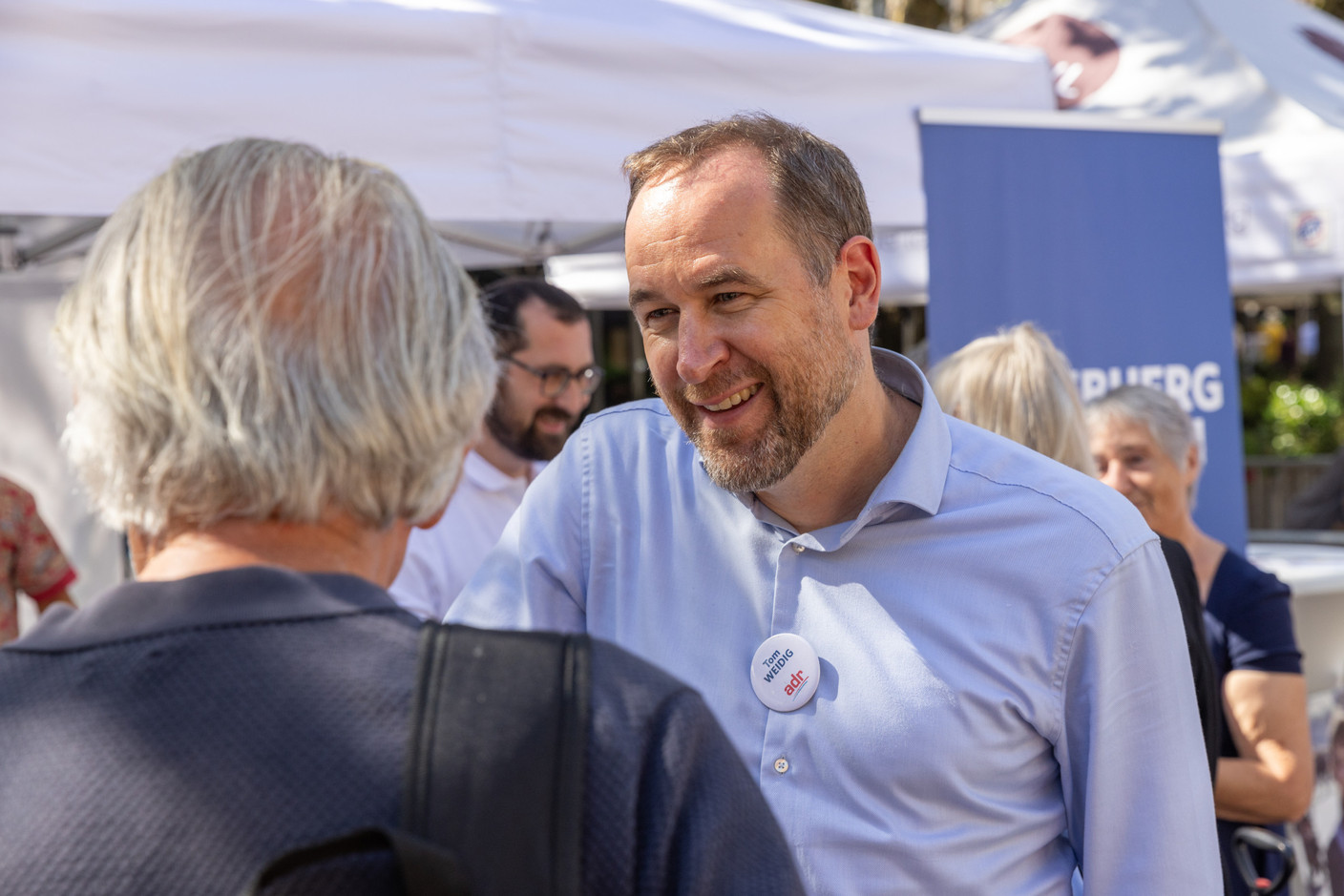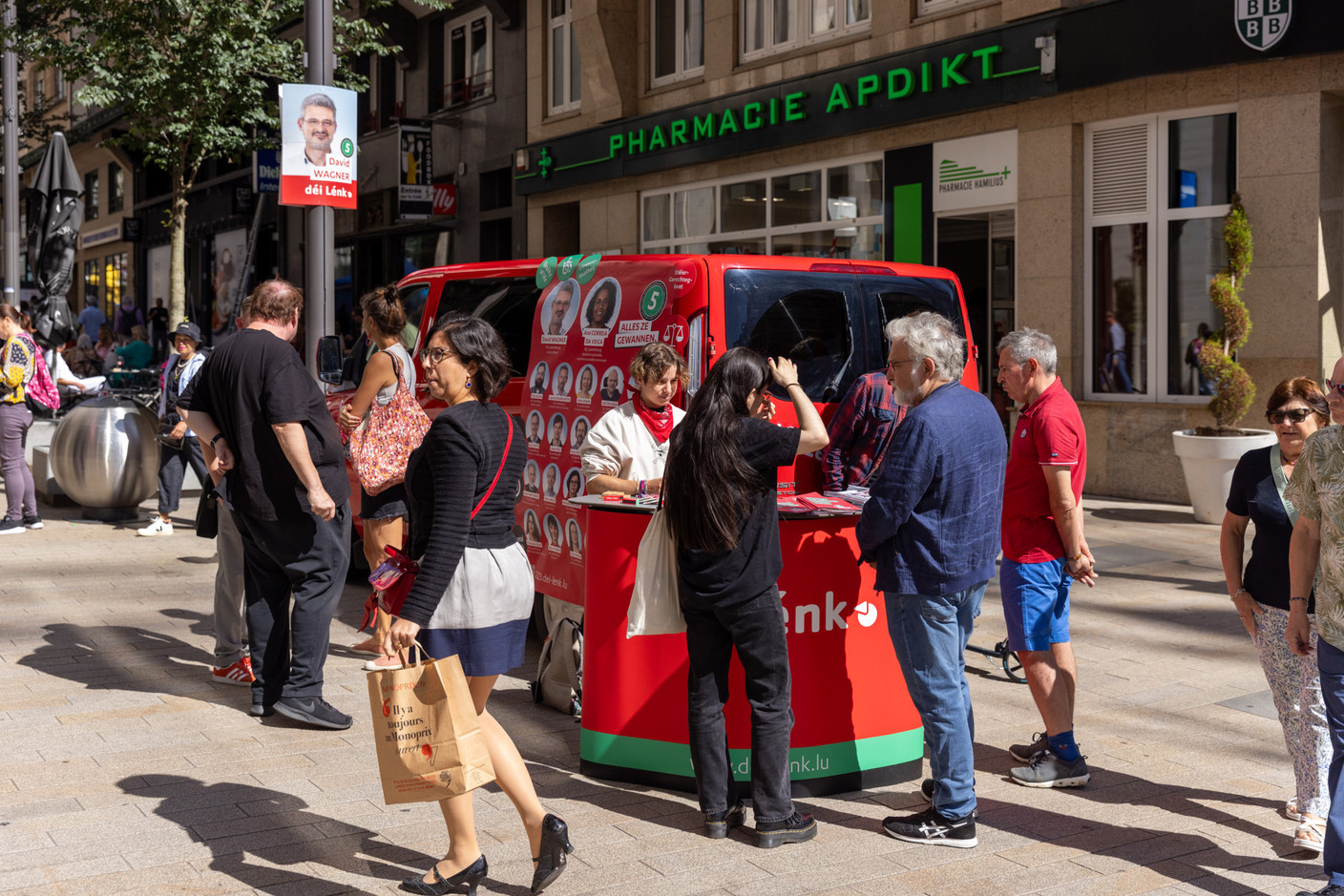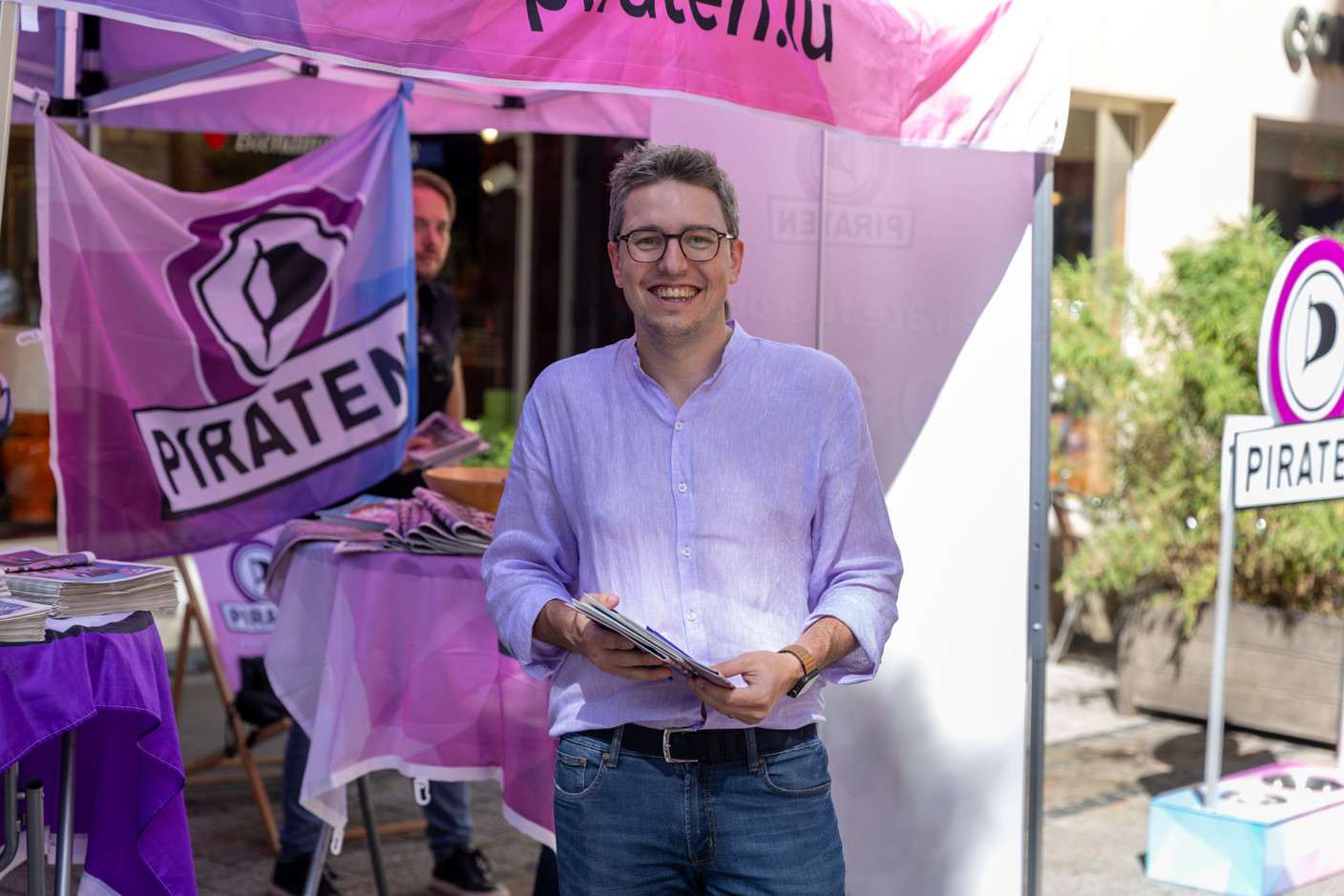Nine of the twelve parties with elected representatives went out to meet voters at the braderie on Monday. Missing were Die Konservativ, KPL and Volt--in other words, the parties not presenting full lists in the next general election.
The sun was out, as were the . While the major parties are present at the event every year, this election year offered a unique opportunity to meet voters. This year, by all accounts, the braderie marked the effective start of the election campaign.
The DP was playing on home turf, and could count on ’s omnipresence at the braderie in Luxembourg’s city centre. The stand on Rue Philippe II was very popular from the morning onwards. It didn’t take long for the party’s leading figures to make their presence felt: (DP) and Xavier Bettel (DP), hand in hand, along with (DP). “The atmosphere was very positive,” commented (DP), MP and secretary general of the party.
The CSV stand on rue des Capucins was also well attended. The atmosphere was one of hugs and handshakes. “People stop by to support us and tell us that the country needs change and that they are counting on us to embody it,” said (CSV), MP. He acknowledged that the fear of voters is that the coalition will keep its 31 seats, which would make any change impossible.
Visitors arrived later at the LSAP stand, but turned up at the stroke of lunchtime, when all the party’s big names got there. “People have come to ask questions, both about the legislative elections and about the situation in the city,” said Maxime Miltgen (LSAP), candidate for the central constituency and head of the list of Socialist candidates in the municipal elections in June. “The questions relate to our reforms, taxation, housing and the reduction in working hours.” She admitted that voters were very interested in this last point. Cutting working hours is a reform that is not necessarily a demand from the grassroots, but rather “the logical continuation of the socialist commitment.”
The day got off to a slow start, but when it came time to pack up the stand, a feeling of euphoria hung over the activists. Luc Decker (LSAP), deputy chief of staff at the ministry of the economy and candidate in the municipal elections, cited a surge of membership requests. “It’s heart-warming.”
The déi Gréng stand on avenue de la Porte Neuve was less well attended, perhaps because the party also had a stand on Avenue de la Gare. But there was nothing to worry (déi Gréng) and (déi Gréng), who were comforted by supporters “who came to see us to give us their support, congratulate us on our work and wish us luck. It’s a positive, non-aggressive atmosphere. It’s good to be here.” The party distributed apples at their stand, “Organic apples produced in Luxembourg.”
Between the four major government parties and the others, there was a clear difference in terms of attendance.
The ADR, on place d’Armes, almost opposite the LSAP, still attracted a lot of supporters. Tom Weidig (ADR), candidate and vice president of the party, was delighted: “This stand is important for a party like us, which has less of a presence in the media…. People come to give us their support and to talk about their practical problems. The issues they talk about most are security, language, housing, education and immigration. People think that when it comes to these social problems, the traditional parties don’t take them seriously.”
By coincidence, opposite the ADR was the stand of Liberté-Fräiteet!, MP ’s new party. He made no secret of his delight at being there. “It’s great. People are stopping to give us their support. We don’t have to give them anything. Even the T-shirts have to be bought.” The party founder conceded that there are very few curious onlookers, but people “who know our values and support them, people who are happy to have an alternative and who without us wouldn’t vote.” And he noted a high proportion of people from the worlds of education and health. “Support, admiration, love,” he summed up. “That’s why our lists were drawn up so quickly: because people came to us.”
At the déi Lénk stall, in rue Aldringen, people came to find out what’s going on, according to Pierre Turquin (déi Lénk), a young parliamentary candidate. The declared aim was to get in touch with people and have a chat, or even to demystify certain proposals, particularly those relating to inheritance tax. “As always when we set up a stand, I couldn’t stop talking,” explained (déi Lénk) at the end of the day. He spoke on many subjects relating to employment law. “These discussions will be followed by parliamentary questions.”
A little isolated, leaning against the Centre Louvigny, Fokus was present in numbers. Marc Ruppert, the party’s president, recognised the importance of this day for a small and new party. And he was counting on making full use of the curiosity effect with targeted arguments on the nine points that differentiate Fokus from the other parties, with an emphasis on social and family policy. “This event was a priority for us, despite the organisational challenges it poses, especially in the context of a short campaign,” he stated.
The Pirates were somewhat remote at the end of the Rue des Capucins. However, they were satisfied with “the quality of the discussions with the people who came to find out more.”
On the substance, all the parties insisted on the need for people to talk. This, despite the good-natured atmosphere, reflects a very high level of concern. It’s much higher than in previous elections. Housing, purchasing power, war: these are all major issues on which the parties will have to prove that they have ideas and solutions.
Read the original French version of this report on the site
